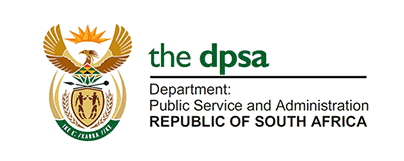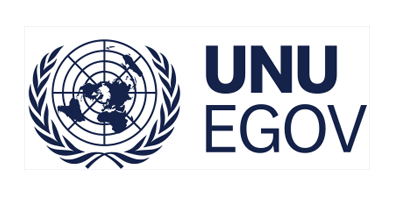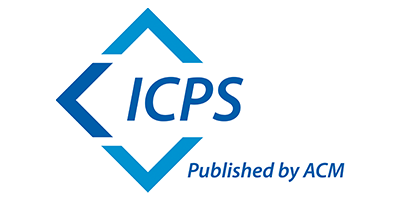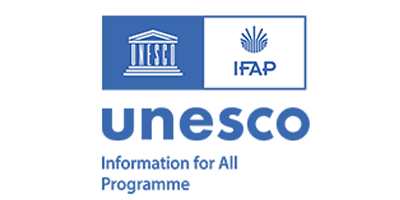▢ Conference Proceedings
All accepted papers will be published in the conference proceedings on the condition that at least one author attends the conference and presents the paper. Currently, the ICEGOV acceptance rate is 42%.
The proceedings will be published in digital format only as part of the ACM International Conference Proceedings Series (ICPS). This series provides a mechanism for publishing the contents of high-quality conferences in the ACM Digital Library (DL), thereby increasing their visibility among the international computing community. ACM has published over 45 000 research papers from over 1350 conferences. All ICPS-published articles are assigned DOIs, enhancing discovery, enabling persistent reference linking and archiving in digital preservation repositories, and ensuring perpetual access. Additionally, the published papers will be indexed in Scopus, Web of Science, Google Scholar, and DBLP – Computer Science Bibliography, among others.
- Title: ICEGOV ’24: Proceedings of the 17th International Conference on Theory and Practice of Electronic Governance
- Editors: Soon AE CHUN, Geci KARURI-SEBINA, Erico PRZEYBILOVICZ
- Publisher: Association for Computing Machinery, New York, NY, United States
- Conference location: Pretoria, South Africa
- Conference date: 1-4 October 2024
- ISBN:
▢ Best Paper Awards
The goal of the ICEGOV Best Paper Awards is to acknowledge excellent research performed by the authors whose papers have been accepted and presented at the conference. The winners in the different categories are announced during the closing ceremony by the Awards Committee Chair. For more information regarding the eligibility criteria and selection process, download the ICEGOV Best Paper Awards Policy.
Two categories were awarded at ICEGOV 2024:
-
- Best Research Paper
- Best Ongoing Research Paper
Best Ongoing Research Papers 2024:
Nominated
-
- Causes and Consequences of States’ Responsiveness to the UN E-Government Survey: Exploring the Role of the Member States Questionnaire, authored by Yury Kabanov
- Mitigating Risks: Safe, Wise and Secure Use of Digital Technologies by Migrant Communities in South Africa, authored by Maria Lorini, G. Harindranath, Tim Unwin
- Indigenous knowledge systems, situated and contextual learning: unlocking collective human digital capabilities and competencies for Global South communities in the digital era, authored by Kgopotso Magoro
Winner
Causes and Consequences of States’ Responsiveness to the UN E-Government Survey: Exploring the Role of the Member States Questionnaire, by Yury Kabanov
- Justification: This ongoing research paper examines the interactions between the United Nations Member States and the United Nations for the purpose of providing data for the UN e-Government Survey using so-called Member States Questionnaire. Four literature-based hypotheses are formulated linking the Member States’ previous e-governance performance, degree of economic globalization, and quality of governance to higher response rates to the Questionnaire and, in turn, higher response rates to higher scores achieved in the Survey. Based on the data obtained from three previous editions of the Survey, all hypotheses except the one relating quality of governance to higher response rates, were confirmed. The results are important – they reveal possible reasons for continuing divides between countries in advancing their e-government performance as measured by the Survey.
Best Research Papers 2024:
Nominated
-
- Equitable AI Audits: evaluating the evaluators in today’s world, authored by Monique Munarini, James Brusseau, Lorenzo Angeli
- Promoting Multi-actor Collaboration for New Online Service during Public Health Emergency: Roles of an Innovation Lab at Local Government, authored by Qianli Yuan
- Social Media for Predicting the Mexican Presidential Election: Beyond X and Facebook, authored by Héctor Gutiérrez, Alejandro Languré, Mahdi Zareei, Kellyton Brito
Winner
Equitable AI Audits: evaluating the evaluators in today’s world, by Monique Munarini, James Brusseau, Lorenzo Angeli
- Justification: This research paper explais the fairness-equity duality in relation to building and regulating reliable Artificial Intelligence (AI). Then, considering AI regulations enacted by international bodies like OECD, UNESCO, the United Nations, or the European Union, and philosophical foundations like John Rawl’s Theory of Justice, the paper positions equity at the intersection of the legal, technological and ethical domains. Finally, relying on the social philosophies of Beauvoir, Freire, and Lorde, the paper builds a common definition of equity which rests on four elements: 1) identifying those in need, 2) determining the essential resources, 3) understanding the target community, and 4) achieving a sense of belonging within that community. This definition is then applied to addressing bias, discrimination and other failures of AI through ethics-based AI audits, using the four elements in the defintion of equity to guide ethical AI practices. The outcome is important for socially-sensivite and -responsible use of AI.














